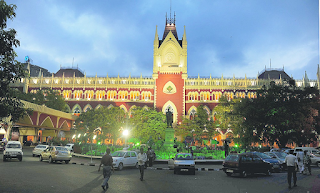The Calcutta High Court asserted that educational institutions
lack the authority to revoke a student's registration for a course based on
failure to meet cut-off marks in school-leaving exams. The court emphasized
that eligibility criteria must be evaluated during the initial admission
process, preventing subsequent cancellations.
Case Judgement
The Calcutta High Court issued a significant observation regarding the cancellation of student registrations by educational institutions based on failure to achieve cut-off marks in school-leaving exams. The court asserted that no educational institution possesses the right to revoke the admission of a student who has already been admitted to a course due to not attaining the requisite cut-off marks. The eligibility criteria must be ascertained during the admission process itself. Justice Debangshu Basak conveyed this stance while presiding over a petition presented by three students from Apollo Gleneagles Nursing College. These students were barred from appearing for the Part III exam as they did not secure the minimum 50% marks in each of the three science subjects - physics, chemistry, and biology - required for enrolling in the nursing course.In response to the situation, the Calcutta High Court directed the West Bengal University of Health Sciences (WBUHS), the institution affiliated with the nursing college, to permit the three students to continue their studies. The court's judgment emphasized that once a student has been granted admission and has undertaken the Part I and Part II exams, their right to pursue the course cannot be revoked unless there is evidence of suppression, misrepresentation, or fraud. The court pronounced that the eligibility assessment for admission must be conclusive at the time of enrollment itself.
The three students involved in the case - Ellora Bishoi, Tamalika Panja, and Piyali Khanra - had enrolled in the four-year nursing course in 2013. They successfully completed the Part I and Part II exams. A university official acknowledged that both the college and the university should have verified the mark sheets before admitting the students. The official acknowledged that the students did not fulfil the criteria, which were not detected during their admission. Subsequently, the university did not permit them to apply for the Part III exam when it was discovered that they did not meet the required marks.
Notably, the court's order has not been challenged by the university. The Apollo Gleneagles Hospitals Educational Trust expressed agreement with the court's decision, maintaining their support for the students.
The case revolved around Ellora Bishoi, who, after passing her higher secondary exam in 2013, pursued admission to Apollo Gleneagles Nursing College in Kolkata. Upon applying for the Part III exam in October of the subsequent year, the university declined her request, asserting that her physics marks did not meet the 50% requirement. This resulted in the cancellation of her registration. Represented by lawyer Ekramul Bari, Ellora contested this decision in the high court, arguing that the university did not have the right to revoke her registration midway when she was allowed to enroll and complete prior course components.
In the course of the legal proceedings, two other students from the same nursing college, Piyali and Tamalika, joined the case as additional petitioners. They were similarly not allowed to apply for the exam due to scoring below 50 in chemistry during their higher secondary exams. The university contended that the students had suppressed facts during admission, a claim that was refuted by Bari with supporting documents indicating the submission of their higher secondary exam mark sheets during admission.
Referenced Material
https://www.telegraphindia.com/west-bengal/student-cannot-be-denied-for-college-39-s-admission-fault-hc/cid/1322086



.png)
.png)

0 Comments
If you have any doubt, Please let me know.